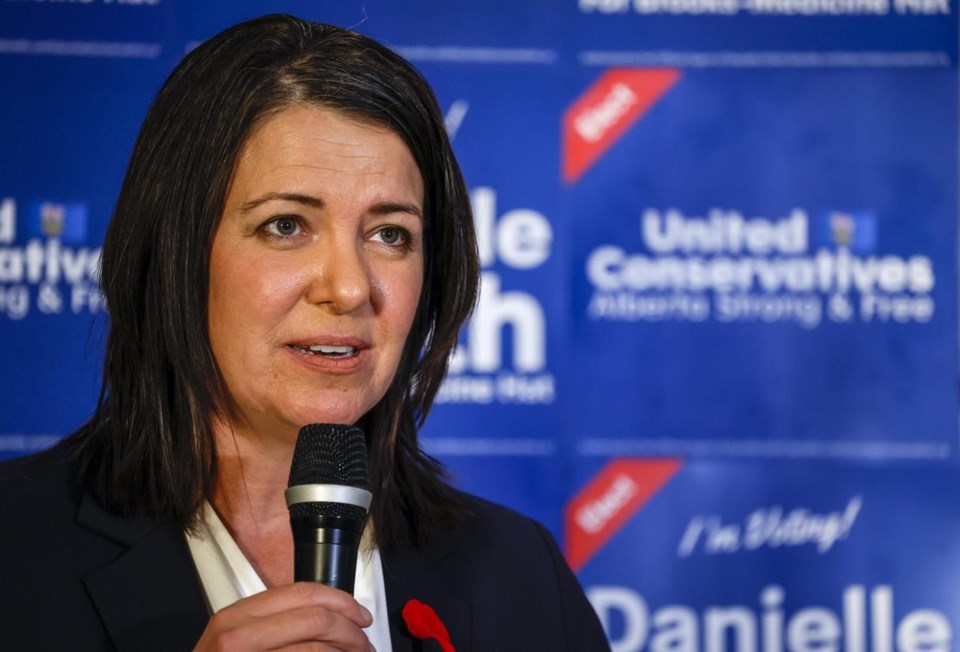EDMONTON — The head of the Rural Municipalities of Alberta says an oil and gas industry proposal to grant the industry royalty credits to clean up abandoned wells is like having the fox design the henhouse.
Paul McLauchlin also says the proposed RStar program would have such profound implications for future revenues that it deserves to be a ballot issue.
“Is (RStar) for Albertans or is it for the industry?” McLauchlin said Thursday. “When I look at it, it is exactly how a fox would design a henhouse.”
He made the comment after United Conservative cabinet ministers heard criticism from rural political leaders about the RStar program at the association's fall convention.
“I always want to stay in my lane, but at the same time we’re stewards of the land, and we represent 85 per cent of the province (geographically),” said McLauchlin.
“From our members, you heard a real pushback saying, ‘You’re (proposing) using public money to actually promote something that you’re obligated to (do) just by operating these facilities.'
“Our members didn’t seem convinced today.”
McLauchlin said Albertans deserve a direct say on RStar.
“If you’re dealing with future royalties, you should actually make that an election (or) referendum conversation,” he said.
“(If) you’re taking your great-great grandchildren, your grandchildren’s future payments and you’re using them now to promote reclamation, that’s a big discussion all Albertans need to have.”
Earlier this week, Energy Minister Peter Guthrie confirmed his department is studying RStar, which would encourage the cleanup of old wells and drilling of new ones by granting royalty credits on new production based on remediation spending.
Guthrie said an announcement is weeks, if not months, away.
Estimates suggest that if RStar grants the $20 billion in credits industry is seeking, Alberta taxpayers would forgo $5 billion in revenue.
RStar has been widely criticized by energy economists, who say it would transfer money to companies who don't need it to do work that most are doing anyway. They say energy companies are already legally obliged to clean up their mess.
Previous government programs to help pay for well cleanup came when prices were low. That is no longer the case with the benchmark West Texas Intermediate oil price currently hovering around a lofty US$90 a barrel.
Proponents say the program would encourage new drilling, help clean up Alberta's 170,000 abandoned wells and create jobs.
Premier Danielle Smith, in a speech to the association Thursday, did not mention RStar specifically but said, “We are working on finding a long-term solution to cleaning up unused well sites so that we can also put that land back into production.”
Smith spoke strongly in support of RStar last year when she was a lobbyist for the Alberta Enterprise Group, representing some of the province's largest businesses.
RStar was rebuffed at that time by then-energy minister Sonya Savage on the grounds RStar wouldn't fit within Alberta's current royalty structure and would violate the polluter-pay principle, which is one of the foundations of environmental regulation.
Savage was moved out of the energy portfolio by Smith two weeks ago to a new post as minister of environment and protected areas.
Smith reiterated in a recent interview that she still champions RStar.
“I know that (RStar) will be a way we can clean up some of our legacy well sites,” she told the Western Standard in a livestreamed interview Oct. 21.
“It’s creating a black eye for us internationally, and I’m highly motivated for us to figure out a process to reclaim those wells all the way through to the end.”
The Opposition NDP said it’s concerning to see a policy promoted by Smith the lobbyist and rejected by the government now reopened under Smith the premier.
McLauchlin said he, too, is trying to understand why a policy dismissed by the former UCP energy minister is now back on the table for the new UCP energy minister.
“It’s quite confusing what’s changed between now and then,” he said.
This report by The Canadian Press was first published Nov. 10, 2022.
Dean Bennett, The Canadian Press



